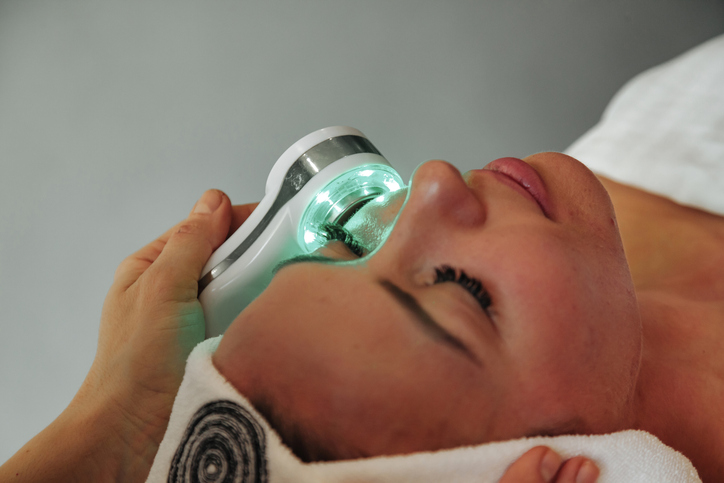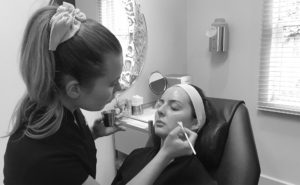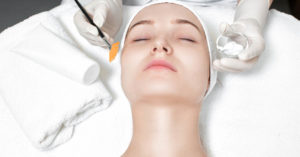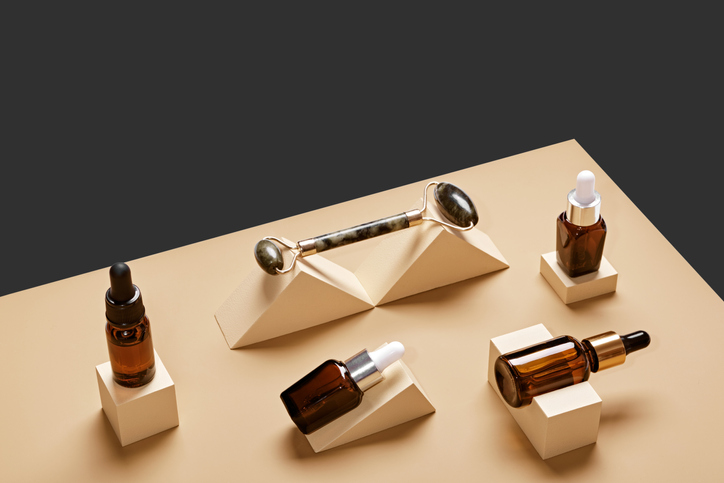
Do LED treatments really work?
LED light therapy, also known as phototherapy, is a non-invasive treatment that harnesses the power of light to address various skin concerns.
Dr Michael Rich is a specialist dermatologist who has been performing tumescent liposuction for over 30 years. Find out if Liposuction is suitable for you at ENRICH Clinic.
At ENRICH Clinic, we have a wide range of dermatological and cosmetic body treatments tailored to individual body and patient needs.
At ENRICH Clinic, our treatments are performed by our medical team consisting of doctors, nurses, and dermatologists and are tailored to each patient’s skin health needs.
ENRICH Clinic is committed to your skin health and well-being with a range of dermatological & cosmetic treatments tailored to the individual. Our treatments are performed by our medical team consisting of doctors, nurses, and dermatologists.
Skin health is essential for everyone. ENRICH Clinic has a wide range of technologies and dermatological solutions to help you achieve your skin care goals.
A chemical peel is a cosmetic treatment designed to remove the top layers of skin on the face, revealing fresh skin underneath. The outer layers of your skin are known as ‘keratinised’, which essentially means they are harder and dryer than the fresh skin underneath.
Once these outer layers are dissolved using chemicals, the new skin underneath is revealed, and the complexion is refreshed. A chemical peel is a type of skin resurfacing, which can now also be performed with lasers.
There are several types of peel, generally categorised by how deeply they treat skin layers. The lightest peels, often using fruit acids, are used to reduce the appearance of fine lines and wrinkles, reduce skin dryness, remove pigmentation and help manage acne.
The next sort of peels go deeper, and are used to reduce the appearance of surface wrinkles, blemishes and pigmentation. The strongest peels are used to treat deeper wrinkles, sun-damaged skin, and precancerous growths.
Read more about the different types of chemical peels ENRICH provides
Anaesthetic is not required for most chemical peels, and in trained hands, chemical peels are considered to be an effective and budget-friendly alternative to more expensive laser treatments and cosmetic surgery.
There are some very deep chemical peels that require anaesthesia, however these resurfacing cases are now usually treated using laser resurfacing techniques at ENRICH.
 How much does a chemical peel cost?
How much does a chemical peel cost?Prices vary depending on the strength of the peels, and between providers. You can expect to pay in the hundreds for a high-quality peel by an experienced dermatology clinic.
 Chemical peels are seeing a resurgence in popularity due to their effectiveness and price: you can get a lot of bang for your buck. The peel has been largely superseded by lasers, ultrasound, radiofrequency and other devices, but the chemical peel remains a solid anti-ageing and face-brightening tool.
Chemical peels are seeing a resurgence in popularity due to their effectiveness and price: you can get a lot of bang for your buck. The peel has been largely superseded by lasers, ultrasound, radiofrequency and other devices, but the chemical peel remains a solid anti-ageing and face-brightening tool.
There has been a misconception in the past that darker skin tones are risky to perform chemical peels on, however this may not be true. What remains true is that the person performing the peel must be qualified and experienced in chemical peels on darker skin tones – your practitioner is the key to results.
The issue was revealed to be that doctors were mostly treating light skin tones, and lacked the experience or research subjects to properly treat a diverse group of patients effectively. Darker skin tones do need to be treated with care due to the greater levels of pigmentation present, but an experienced practitioner is well-versed in all skin types.
If you’re into science and want more information on chemical peels and how they work, this 2017 scientific review (O’Conner et al) offers some excellent information, including what the Ancient Egyptians were using.
Your cosmetic practitioner will cleanse your face, removing makeup and oil, then carefully apply the peel mixture to your face. The peel has time to work, and then the application is washed off, you are re-moisturised, given after-care instructions, and sent on your way. At ENRICH Clinic, our nurses often undertake the glycolic and fruit acid peel procedures whilst our doctors perform the deeper peels.
Deeper peels may require specialised after-care, but in all cases, staying out of the sun completely or wearing lots of sunscreen is really important, at least for a little while. This is because your protective outer layer of skin is gone, and the fresh new cells underneath are very susceptible to UV damage. UV exposure can result in pigmentation developing.
Protecting yourself physically from the sun includes incidental sun exposure while driving around, even on a cloudy day, steering clear of sunny windows, and avoiding sitting by water, even with a hat on.
Post-inflammatory pigmentation is real, and you can ruin the effect of your chemical peel in no time, giving yourself a new reason to go back to the dermatologist.
Chemical peels are considered an effective cosmetic treatment and certainly have their place in our arsenal against that pesky top layer of dry, dull skin. Most skin types can tolerate a chemical peel. However, not everyone is a suitable candidate. Speak to any one of our cosmetic nurses or doctors for an assessment of your skin to see if you are suitable.
Contact our friendly team for an appointment
*With all surgeries or procedures, there are risks. Consult your physician (GP) before undertaking any surgical or cosmetic procedure. Please read the consent forms carefully and be informed about every aspect of your treatment. Surgeries such as liposuction have a mandatory seven-day cooling-off period to give patients adequate time to be sure of their surgery choice. Results may also vary from person to person due to many factors, including the individual’s genetics, diet and exercise. Before and after photos are only relevant to the patient in the photo and do not necessarily reflect the results other patients may experience. Ask questions. Our team of dermatologists, doctors and nurses are here to help you with any of your queries. This page is not advice and is intended to be informational only. We endeavour to keep all our information up to date; however, this site is intended as a guide and not a definitive information portal or in any way constitutes medical advice.
"*" indicates required fields
Combining Dr Rich’s dermatological skill with his knowledge of restorative skin regimes and treatments, the ENRICH range is formulated to help maintain and complement your skin. Our signature Vitamin C Day & Night creams are now joined by a Vit A, B,&C Serum and a B5 Hyaluronic Gel, both with hydration properties and much, much more.

LED light therapy, also known as phototherapy, is a non-invasive treatment that harnesses the power of light to address various skin concerns.

Keep your skin looking and feeling its best with these upcoming skincare trends of the year. Learn more about the products, treatments, and cosmetics you’ll need to stay on top of the latest in aesthetics skincare.

Here in Australia, when working outdoors you must make looking after your skin a priority. We can help with your skin health.

Non-surgical chin and jawline contouring treatments like liposuction can have an affect how we perceive the face.
Subscribe to the ENRICH newsletter and receive latest news & updates from our team.
Enrich Clinic acknowledges the Traditional Lands of the Wurundjeri Woi Wurrung and Bunurong peoples of the East Kulin Nations on which we work and trade. We pay respect to their Elders past, present and emerging. We extend our acknowledgement and respect to the LGBTQIA+ community who we welcome and support. Read our full Acknowledgement Statement here
